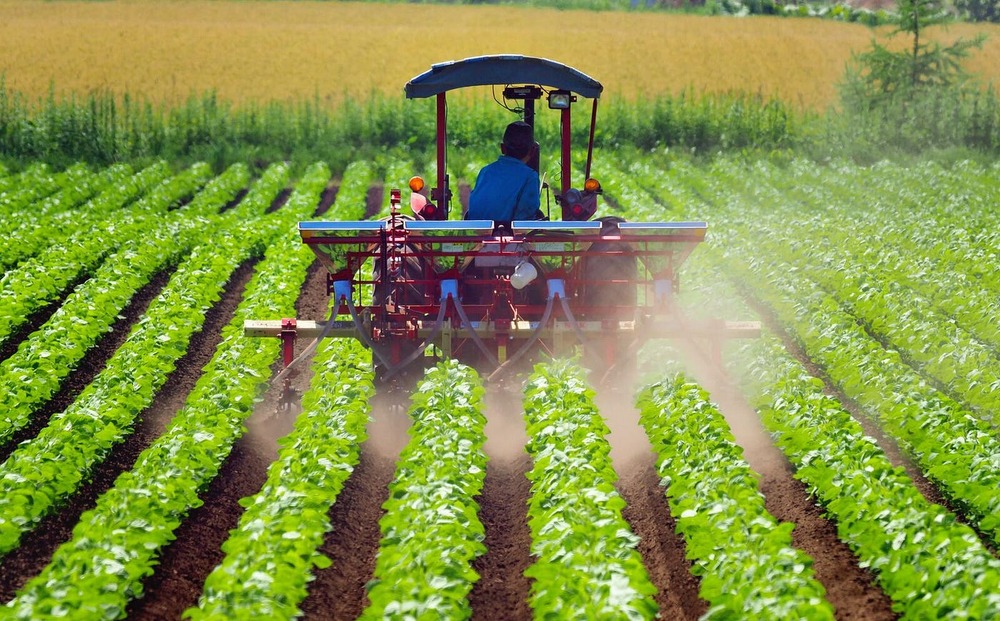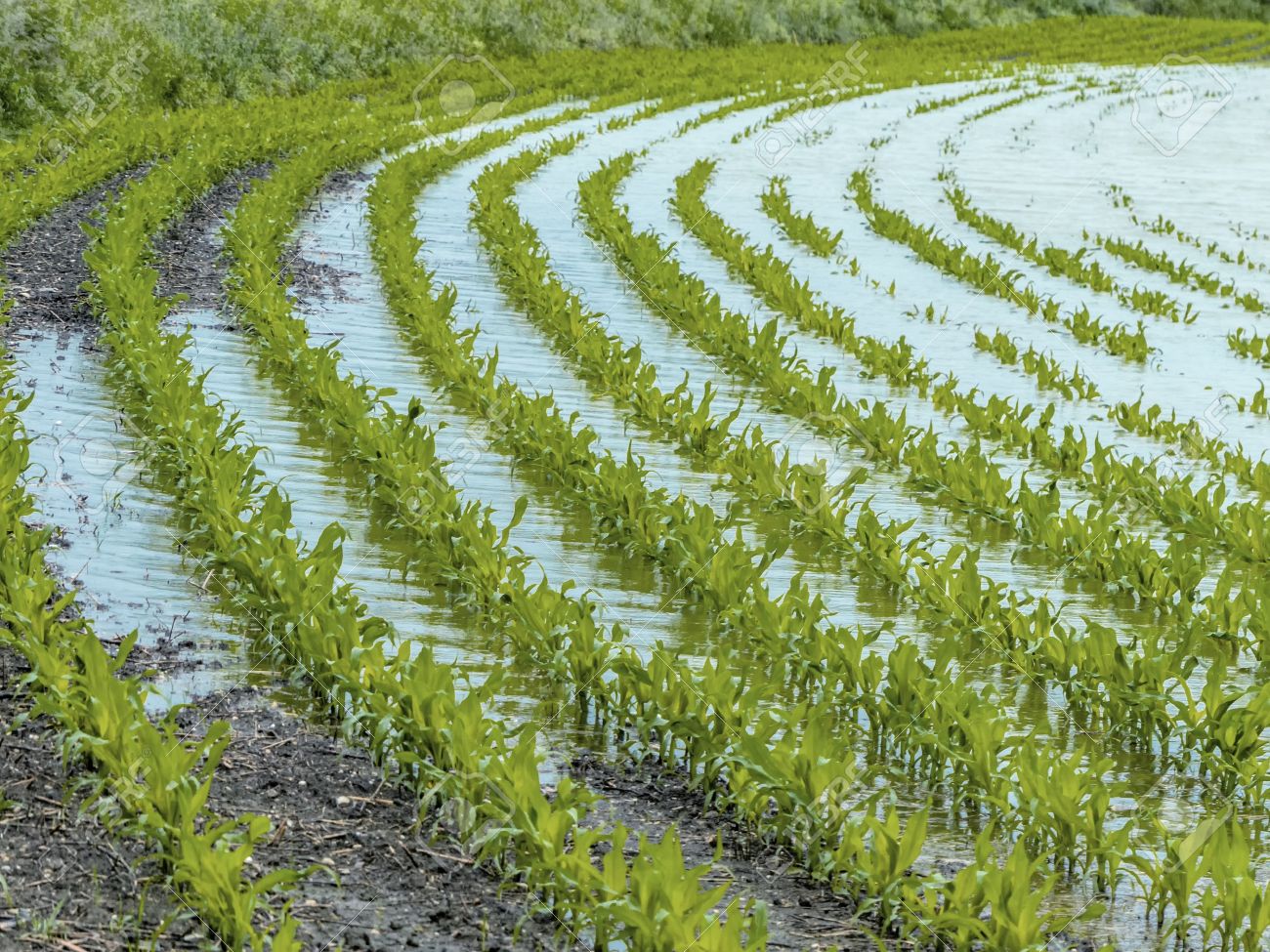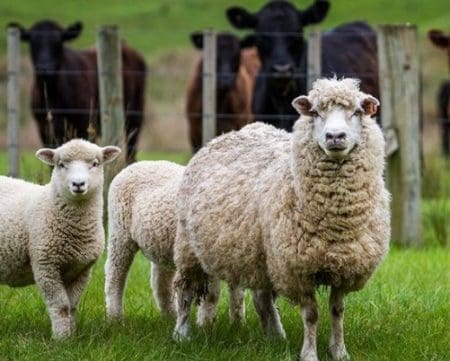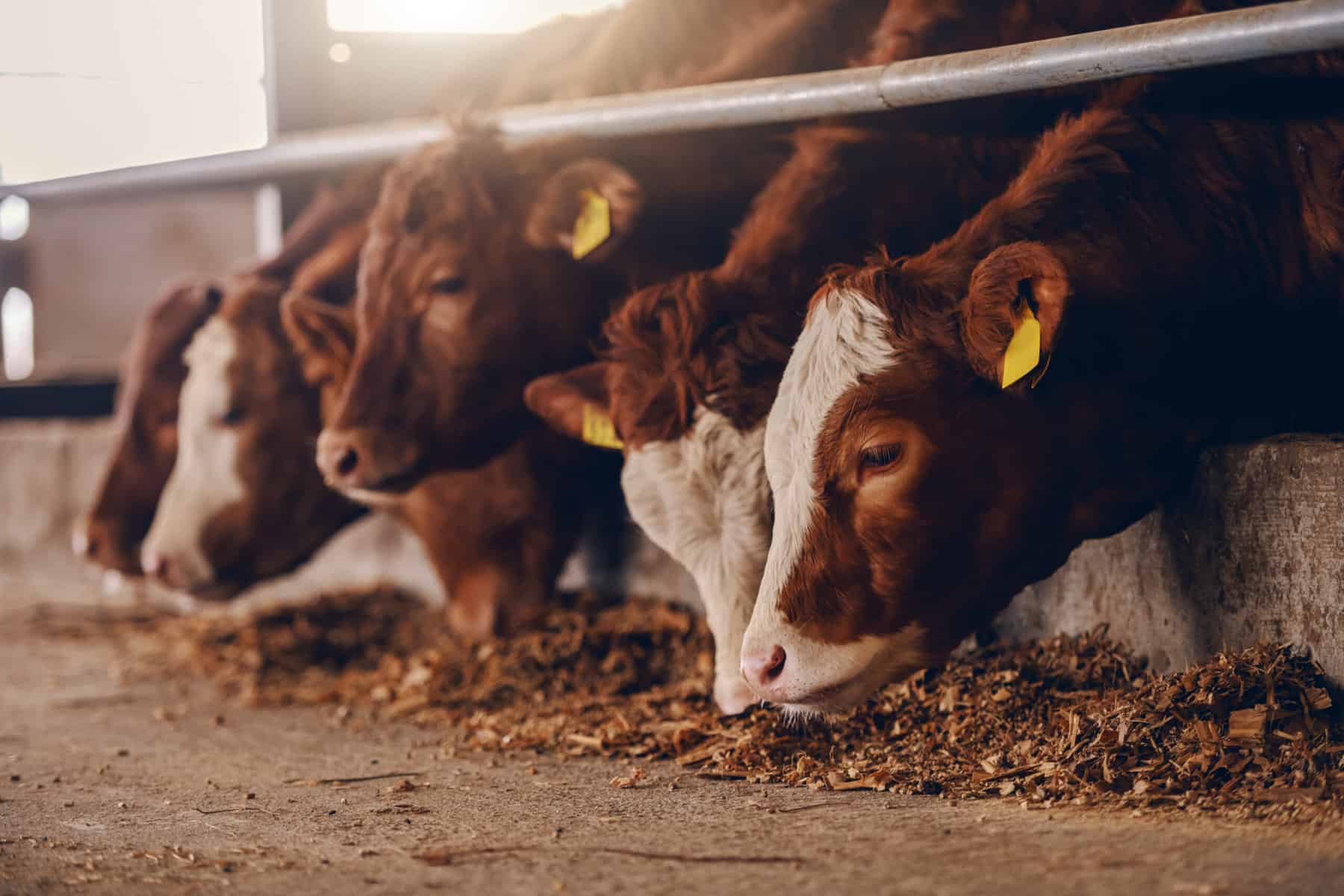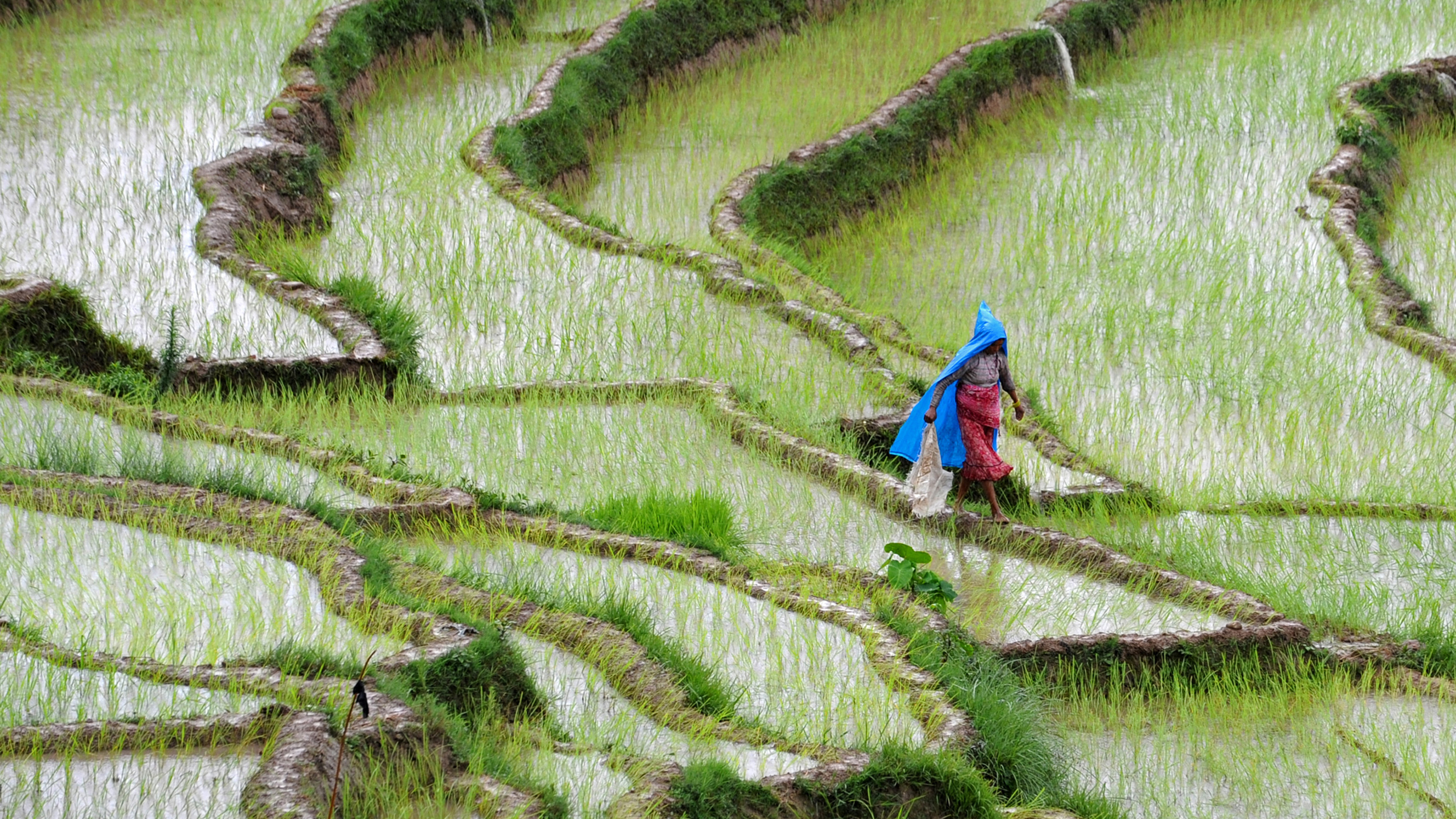Late blight is an old foe of humans. This disease catalysed the devastating Irish potato famine that began in 1845.
It is caused by a fungus-like pathogen, which quickly kills a potato plant and turns the crop into inedible mush.
More recently, late blight has been creeping into higher parts of the Peruvian Andes, as warmer, wetter weather helps the pathogen spread.
So scientists at the International Potato Center (CIP), a research institute in Peru, were very motivated to develop potato varieties that could resist late blight.
They searched for this trait among so-called crop wild relatives – undomesticated plants that are distantly related to the ones now grown for food.
After finding the disease resistance in potato wild relatives, they crossed the wild plants with cultivated ones. Local farmers then tested the newly developed varieties, voting for the ones they preferred to grow, sell and eat.
The result is CIP-Matilde, a potato variety released in 2021 that doesn’t require fungicides to stand up to late blight.
“Usually it’s easier to improve the resistance to a certain disease,” explains Benjamin Kilian, a senior scientist at the Crop Trust, based in Bonn, Germany. The non-profit organisation partnered with CIP to develop the Matilde potato, and is working on many other crop varieties.
While disease resistance might come down to a single gene, making resistance to stressors like drought or salinity, can involve working with hundreds of genes.
To tackle drought tolerance, for instance, scientists could explore traits like early flowering to escape the effects of drought, less loss of water from plant leaves, or long roots so that plants can extend further to reach water.
Mr Kilian leads the Crop Trust’s Biodiversity for Opportunities, Livelihoods and Development (Bold) project, which brings together partners including community seed banks, national breeding programmes, and international research centres.
Crucially, it also convenes farmers. They express their preferences for particular traits and test the different crop varieties under development (including voting by placing stones, sticks or seeds next to their favourite varieties).
These participatory processes involve listening to different kinds of farmers, Mr Kilian says.
For instance, “sometimes women and men, even within the same family, prefer different traits.” Women might be more concerned about taste and nutrition, while men are often more focused on yield.
Yield – the amount of a crop actually harvested per unit of land – is never too far from conversations around agricultural production. However, attempting to maximise yield at all costs has led to a more monotonous food system, with high-yield varieties displacing a range of others.
“Under optimal conditions with high input you can achieve great yields. But you can also risk complete crop failure,” Mr Kilian says.
“For most farmers, it’s more important to have a stable, reliable yield under all kinds of different environments.”
One crop that the Bold project is supporting is the grass pea. Mr Kilian explains that this nutritious legume can handle waterlogging and tough environments. “It was often the last crop that survived if there was a drought event.”
It fell out of favour because of a toxic compound that could be dangerous if eaten in large quantities (such as during a famine). But the Crop Trust and partners are working to reduce the toxicity by cross-breeding grass peas with crop wild relatives.
Another neglected crop that scientists are heralding for its resilience is azolla, a fern that grows astonishingly quickly and doesn’t require much water. The wild tepary bean, meanwhile, can withstand harsh desert conditions.
Traditional crop breeding can be time-consuming and laborious. Brad Ringeisen, the executive director of the Innovative Genomics Institute (IGI) at the University of California (Berkeley and San Francisco), believes that gene editing using tools like Crispr-Cas9 is the most impactful way of ensuring that crops can withstand disasters.
“It speeds up the innovation cycles. It is a precise tool.”
Mr Ringeisen summarises the IGI’s work on disease resistance in crops: “There are a tremendous number of emerging diseases, and climate change is not helping this.”
He says gene editing is a more elegant way of tackling disease than spraying more pesticides.
As well as disease resistance, the IGI is working on drought tolerance. A rice variety that has been gene edited to reduce the number of pores on leaves, reducing water loss, is now in field trials in Colombia. Such tests are necessary to make sure that gene edits don’t lead to unforeseen side effects in practice.
The IGI’s project is one of a number of scientific efforts to make rice less vulnerable to unpredictable water cycles. Scientists at the International Rice Research Institute in the Philippines, for example, have developed a "scuba rice" strain that can withstand weeks of submergence in water during floods.
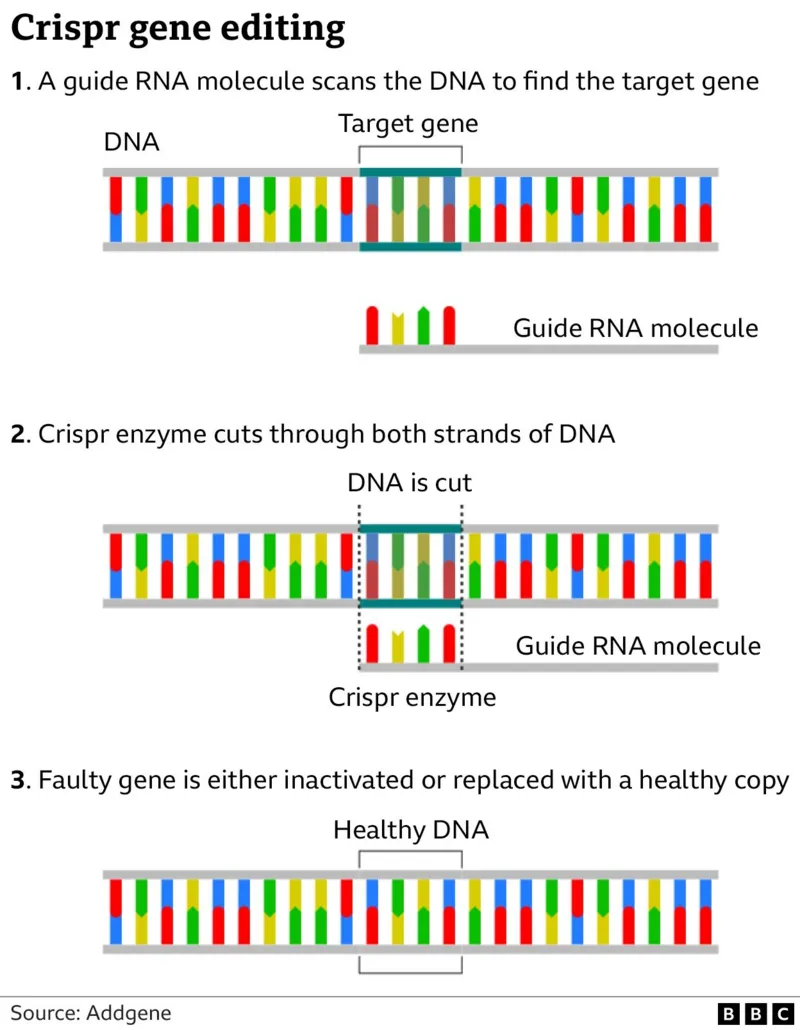
Sometimes the technological process takes longer to ensure that no genes are added from other species. Such genetic modification remains highly restricted in the European Union, thus challenging the commercial viability of genetically modified organisms (GMOs).
Gene editing, in comparison, involves removal of small DNA sections, in an acceleration of processes that could have occurred naturally (over a much longer timeframe). Gene-edited crops are now legal in countries including England and Kenya.
“In many cases they’re just knocking out a gene,” Mr Ringeisen says of gene editors. “There’s no foreign DNA.”
Gene editing has already developed in leaps and bounds. But one young seed-design company that wants to take the technology even further is Inari, based in Massachusetts, USA.
Instead of carrying out a single gene edit at a time, multiplex gene editing allows multiple genes to be targeted all at once. This may be beneficial given the increasingly complex interrelations of climate threats, where a crop can be under multiple types of stress at the same time.
For now the focus of Inari’s multiplex gene editing, combined with AI-aided predictive design, is on yield. The company aims to expand yield by a whopping 10 to 20 times. Unlike the Crop Trust, Inari focuses on three powerhouse crops: corn, soybeans and wheat.
Ponsi Trivisvavet, Inari’s chief executive, says that its soybeans are entering commercialisation this year. The company is initially targeting the Australian and US markets.
Although there are many critics of single-crop agricultural intensification, Ms Trivisvavet believes that being able to produce more crops with the same number of resources is beneficial for a changing climate. “It’s about reducing the water and fertiliser per acre,” she says.
One concern with hybrid and gene-edited plant varieties is their affordability for farmers. While legal frameworks vary, often farmers have to continue buying new seeds each planting season, rather than saving them. Organisations like the African Centre for Biodiversity call for seed management to remain with farmers, rather than companies that can patent seeds.
Climate change will likely force many people’s diets to change, with beloved crops like cacao and banana already proving vulnerable to climate pressures. Embracing the range within these crop families and others could help.
“I think we all should value crop diversity. We cannot rely on just a few major crops,” Mr Kilian warns.
Source - https://www.bbc.com





